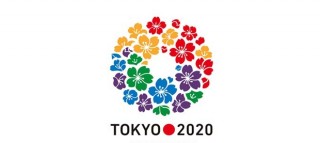Loading
Search
▼ Japan is preparing for Tokyo Olympic 2020 by create new sports leaders.
- Category:Other

With six years to go before Tokyo hosts the 2020 Olympics, the government has fired the starting pistol on efforts to boost global cooperation in sports.
They include the launch on July 26 of the Tsukuba International Academy for Sport Studies, which aims to become an international center for the development of leadership in the field.
“We will be looking for competent foreign students who are likely to play a leading role in sports administration,” said Hisashi Sanada, head of the academy, at the University of Tsukuba in Ibaraki Prefecture. “We’d like them to return (to their countries) after their studies of ‘Olympism’ and Japanese sports science.”
Sanada, a professor and provost of the university’s Faculty of Health and Sport Sciences, said the academy plans to accept about 20 elite students every year, of whom about 15 will be from overseas.
Classes will begin next autumn, when the academy will launch an 18-month master’s degree in International Sport Studies taught in English.
The first of its kind in Japan, the academy will offer a comprehensive program to “nurture internationally minded talent through sports studies,” Sanada said.
“Not only do we plan to offer sports management courses, which are taught at other schools, but we also want students to study Japanese culture, the history of the Olympics, and the science of sports medicine — including anti-doping measures. They will also learn how to teach Olympic education,” he said.
The academy will comprise five courses: Olympic Education, Sport Technology and Medicine, Sport Management and Economics, Teaching, Coaching and Japanese Culture, and Sport Development and Cooperation. Students will pick one of the topics for their thesis.
The Olympic Education class will give students a chance to learn about the Olympic Movement, an international effort to promote world peace through sports.
The academy will also encourage its students to help out in Olympic education at regular schools.
“We may invite the students to give lectures on the Olympics at the 11 schools affiliated with the university,” Sanada said.
The schools include elementary, junior high and high schools. He said such activities would give the students valuable experience.
Furthermore, the Teaching, Coaching and Japanese Culture class will cover Japanese-style hospitality known as “omotenashi” and the nation’s “taiku” physical education.
Taiku refers to a package of sports, gymnastics and martial arts, such as kendo and judo.
“Taiku has developed uniquely. Its classes are offered in Japan from elementary school to college,” Sanada said. “The classes are taught based on Japanese teaching guidelines, and it’s difficult to find similar examples in other countries.”
The professor stressed that he also wants the students to learn the philosophy of Jigoro Kano, the founder of judo and a principal of the Tokyo Higher Normal School, a predecessor institution to the University of Tsukuba. From 1909 to 1938, Kano served as the first Asian member of the International Olympic Committee.
“What Kano sought, as a judoka and educator, was to spread the message that helping others leads to prosperity for oneself and one’s country,” Sanada said.
Upon announcing its launch in July, the Tsukuba academy inked a partnership agreement with the Swiss-based International Academy of Sports Science and Technology (AISTS), an institution founded in 2000 by the International Olympic Committee and other educational institutions.
This will involve AISTS visiting lecturers teaching at Tsukuba on subjects such as how to run an international sports tournament, expertise that by some measurements is lacking in Japan, Sanada said.
To start out, the Tsukuba academy will hold a short seminar in collaboration with AISTS this autumn.
Furthermore, Sanada hopes the AISTS connection will help students find jobs, using the Swiss academy’s extensive network of contacts.
“We hope graduates from our academy may step into jobs at the secretariats of such organizations as the IOC and international sports federations,” he said.
Japanese nationals are under-represented there, Sanada said, and if the numbers increase it will strengthen Japan’s presence and voice in the sector.
Sanada acknowledges that the Tsukuba academy currently lacks broad global recognition, but he said this will change.
“We aim to increase our presence by nurturing talents who understand Olympism, with a Japanese touch,” he said. “We’d like to hear people eventually saying, ‘Go to Japan and learn.’ “
(source : japantimes.co.jp)
(picture : pilotguides.com)
- August 13, 2014
- Comment (0)
- Trackback(0)

